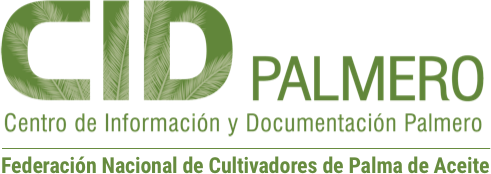| dc.creator | PIPOC 2007 International Palm Oil Congress Palm oil: Empowering change
August 26-30, 2007 :
Kuala Lumpur :
52116. | |
| dc.creator | Manners, John M.
47083. | |
| dc.creator | Malaysian Palm Oil Board, MPOB
50178. | |
| dc.date | 2007. | |
| dc.description | Biotechnology is having a major impact in plant protection strategies for weed and insect pest control globally with transgenic plants carrying either herbicide or pest resistance genes deployed in more than 100 million hectares across 22 countries. Traditional plant breeding and fungicide treatments have been the major methods for the control of fungal diseases and so far no genetically modified commercial crop plants with improved resistance to fungal pathogens have been commercialised. There are several approaches that have been used successfully to engineer improved resistance to fungal pathogens and these include using transgenes encoding antifungal proteins or enzymes affecting defence-related metabolites and structural barriers, transgenes that affect pathogen recognition and regulation of the defence response and transgenes that counter processes necessary for pathogenesis. Strategies that have been shown to be effective in controlling fungal pathogens under defined conditions in model plants or in oilseed crops like canola will be described. To ensure that the GM product meets the high standards of safety necessary for further commercial product development requires rigorous testing of the potential toxicology and health risks of transgene products and not all technologies pass these tests. Strategies for moving gene technology for fungal resistance towards commercial fruition are discussed. | |
| dc.description | Incluye referencias bibliográficas. | |
| dc.description | Biotechnology is having a major impact in plant protection strategies for weed and insect pest control globally with transgenic plants carrying either herbicide or pest resistance genes deployed in more than 100 million hectares across 22 countries. Traditional plant breeding and fungicide treatments have been the major methods for the control of fungal diseases and so far no genetically modified commercial crop plants with improved resistance to fungal pathogens have been commercialised. There are several approaches that have been used successfully to engineer improved resistance to fungal pathogens and these include using transgenes encoding antifungal proteins or enzymes affecting defence-related metabolites and structural barriers, transgenes that affect pathogen recognition and regulation of the defence response and transgenes that counter processes necessary for pathogenesis. Strategies that have been shown to be effective in controlling fungal pathogens under defined conditions in model plants or in oilseed crops like canola will be described. To ensure that the GM product meets the high standards of safety necessary for further commercial product development requires rigorous testing of the potential toxicology and health risks of transgene products and not all technologies pass these tests. Strategies for moving gene technology for fungal resistance towards commercial fruition are discussed. | |
| dc.language | ng | |
| dc.publisher | Kuala Lumpur : MPOB, | |
| dc.subject | Biotecnología. | |
| dc.subject | Palma de aceite | |
| dc.title | Biotechnology in plant protection. | |
| dc.type | text | |


